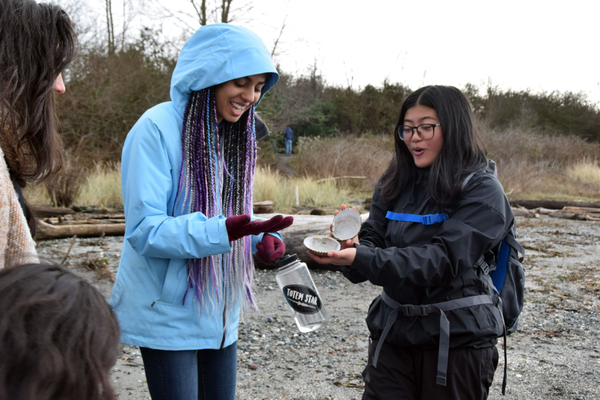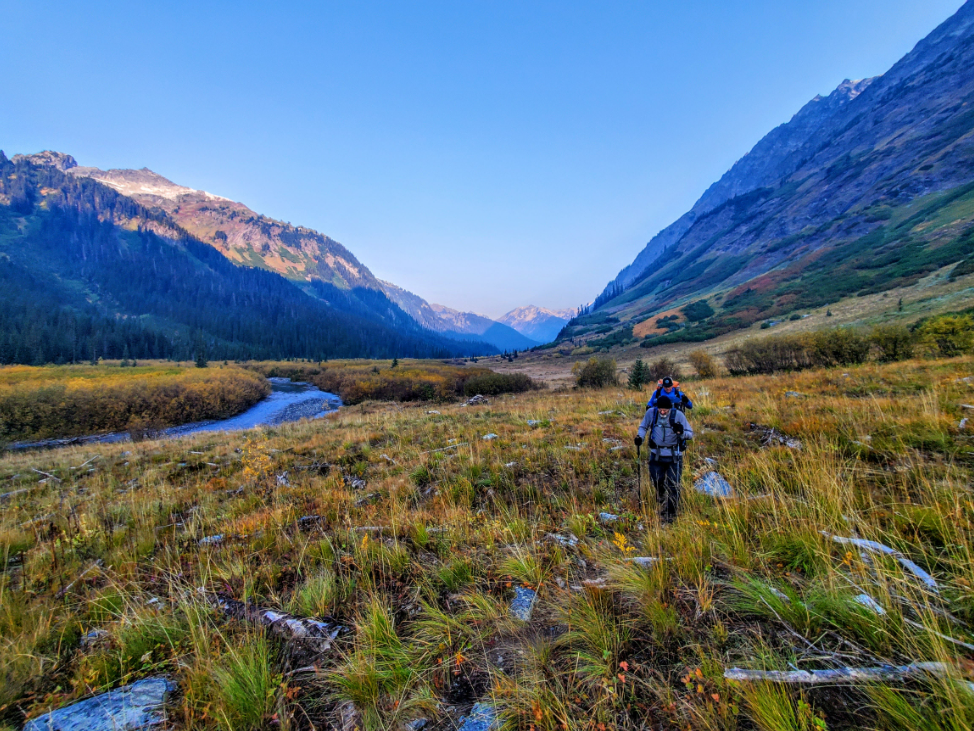
Have you ever walked into a space, say a meeting room or a new bar, and known immediately that you were out of place?
Perhaps you were wearing the wrong clothes or you were running late, rushing into a silent room then gaping in horror as all eyes turned on you. Or maybe you stood out as the only person of your race, gender, age, or size. The awkward feeling you get in those moments, the feeling of standing out and not in a good way, is an experience most of us have felt at times in our lives (ever been told “I’ll tell you when you’re older”?). That feeling - discomfort, acute awareness of yourself as “other,” a strong desire to hightail it out of the space asap - is the opposite of what we’re trying to create in The Mountaineers.
We are striving to create spaces where all people feel belonging.
Belonging
Belonging is walking into a room and fitting in without a second thought. Belonging is the ability to focus on the task in front of you and fully engage in your environment. Belonging is the feeling of security, when you can show up as your true self and find acceptance.
TEENS ENJOYING THE BEACH AT A MOUNTAINWORKSHOP. PHOTO BY BRI VANDERLINDEN.
Put another way, belonging is traveling to a new place and feeling very out of place. That is, until you see someone wearing a t-shirt with your Alma Mater or your city name on it, and being immediately able to connect with that person over shared experiences. The shirt signals that you are in a place with other people like you; that you belong too.
We want everyone to walk into a Mountaineers space and say, “I see myself reflected in the other faces and backgrounds here.” “I’m not intimidated by the language the instructors are using.” “I understand what’s expected of me and others so that we can all create the best experience possible.”
Shifting a Mountaineers culture
I want to pause and recognize that for many of us, particularly many people who look like me - a tall, older, white man – our Mountaineers focus on equity and belonging can feel like a personal affront. I know that some of the terminology we use in our work to build a culture of belonging (like equity, inclusion, diversity, racism, and privilege) has become highly politicized. But we’re not here to make a political statement or to blame people who look like me for the woes of the world - we simply want to strive for an organization where everyone can learn skills, build connections, and give back to our community and our planet.
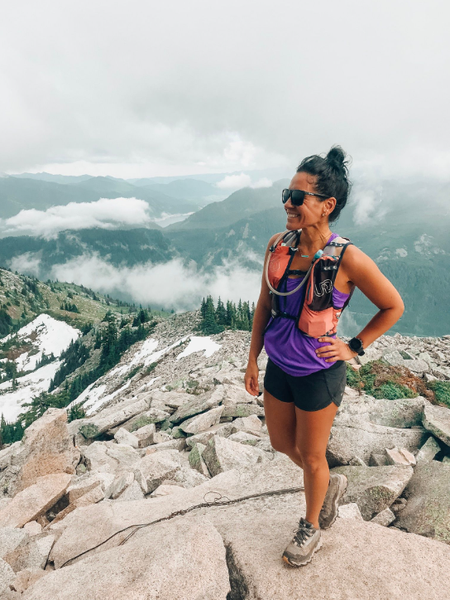 Tiare Vincent on a trail run. Photo courtesy of Tiare Vincent.
Tiare Vincent on a trail run. Photo courtesy of Tiare Vincent.
I also think it’s important to acknowledge that my race, gender, education, and background allow me the privilege to feel belonging in many day-to-day situations where others might feel uncomfortable. Accepting that reality gives me the opportunity to help others achieve a greater sense of belonging in situations where they might otherwise not.
Take our work with equivalency for example. By addressing things like the mysteries that used to (and sometimes still do) surround the equivalency processes for our courses, we’re leveling the playing field for all people. We’re making it easier for anyone with appropriate skills and experiences to get equivalency, and more likely that those individuals will volunteer in the future. This opens more spots in our courses and grows the ranks of our volunteer leaders who can instruct. Do we hope this means we’ll end up with more diversity among our ranks of leaders? Absolutely! But will it come at the expense of other people who look like me? Absolutely not. We simply want to make it easier for anyone to get equivalency. In the long run, this will expand the ability of The Mountaineers to help get more people outside safely and responsibly.
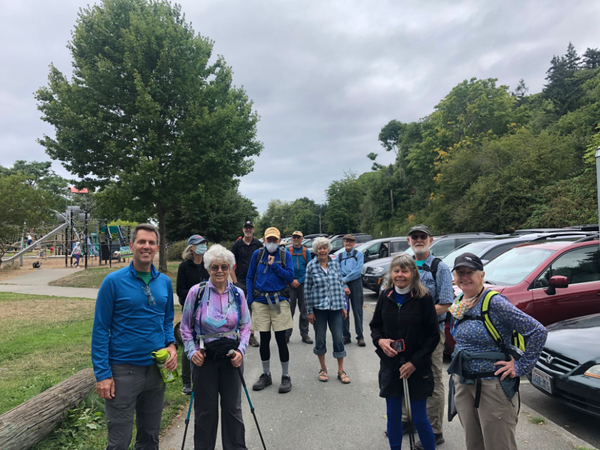 Members enjoying Forever Young Urban Walk. Photo by Bri Vanderlinden.
Members enjoying Forever Young Urban Walk. Photo by Bri Vanderlinden.
We’re approaching this goal of belonging in other ways as well. We acquired a 15-passenger van to reduce the transportation barrier for youth participants in our programs, which makes it easier for groups and families to participate and lowers our carbon footprint. We launched a Gear Library at our Seattle Program Center, which is currently being utilized for our adult and youth activities, and is available to community members at a very low cost. The library reduces the gear our participants need to buy, makes participation more affordable, and decreases our impact on the planet by reusing gear.
As you can see, much of the work to foster belonging has unintended additional benefits to our community and our planet.
One shift that I’m most excited about is an effort to increase visibility for affinity groups (a group of people linked by a common interest or purpose). Affinity groups can offer important spaces for learning and connection, and by having affinity spaces we’re helping to foster a sense of belonging. Most people are familiar with affinity spaces for people of color (POC) or women, and we’ve offered trips geared towards those groups. We also have affinity groups like MountainQueers and Retired Rovers, and soon we’ll offer trips for folks in the 55+ age group. We’ve been hearing from our senior members that they can feel left behind as a newer, faster class joins the ranks, and we’re working to make sure that we have activities and affinity spaces for all Mountaineers to connect over shared interests and values.
Looking ahead
While full of many challenges, the pandemic offered us an opportunity to evaluate our priorities and focus on what matters most. Many of us aren’t content to resume life as it was, and I think that’s a good thing. I believe we should commit to something better, more welcoming, and even more forward- thinking.
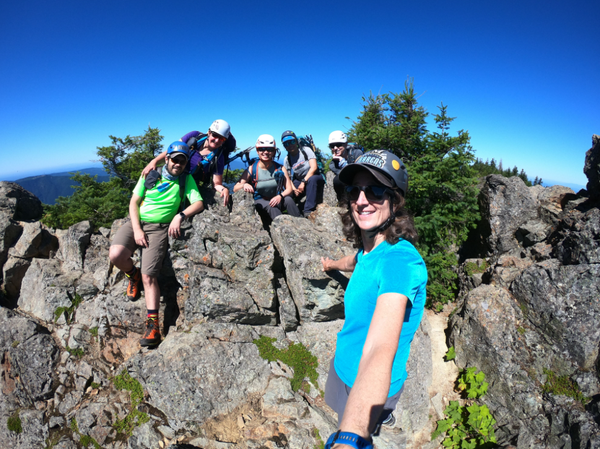 Scramblers at the summit of Haystack at Mt. Si. Photo by Karen Wallace.
Scramblers at the summit of Haystack at Mt. Si. Photo by Karen Wallace.
The Mountaineers is unlike any other community. We have an unparalleled passion for our mission and values. Our dedicated volunteers are unmatched. And we still have a ways to go in making sure that every new and existing member feels welcome among our ranks - which is okay. Life is a journey and in every step we take, we should aim for our actions and intentions to yield a positive impact.
What does this mean for you as a member or volunteer leader with our organization? I see this as an invitation to those of you who look like me, and who have often, but not always, been given the benefit of the doubt, to use our current status as leaders to say, “Hey, not everyone has the same opportunities I have had. When do I feel belonging without a second thought, while other folks may not? What can I do to help my programs be a place where all people - whether they look like me or not - can feel like they belong?” It’s our job as leaders and people who have influence and power to advocate for those who do not.
Belonging is easy to overlook, until you find yourself on the other side of the divide. Our goal with all of this work is simply to close the gap. Doing so will not only ensure a healthy future for our organization, but will foster future generations of advocates for the outdoor experience. I think we can all agree that getting outside is good for us, and when one of us does better, we all do better.
Lead Image by Karen Wallace.
This article originally appeared in our fall 2022 issue of Mountaineer magazine. To view the original article in magazine form and read more stories from our publication, visit our magazine archive.
 Tom Vogl
Tom Vogl
